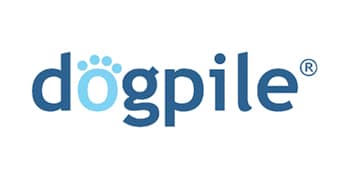
The Importance of Optimising for AI: Future-Proofing Your Digital Strategy
Artificial Intelligence (AI) is no longer an emerging trend—it’s now central to everything we do online. To keep pace, businesses must understand and use AI to boost their digital marketing strategies. Optimising for AI means positioning yourself to benefit from automation, data insights, and improving the user experience. This article explains why AI optimisation is crucial and how platforms like Bizwings.cloud can use it to take their online marketing to the next level.
AI Is Changing the Digital Game
AI has fundamentally changed how we interact with digital platforms. From machine learning (ML) to natural language processing (NLP), these technologies are now everywhere. Search engines, chatbots, and personalisation features all use AI to predict what users want, automate repetitive tasks, and enhance customer experiences.
Take search engines as an example—Google uses AI to understand what people are looking for by interpreting the meaning behind words rather than just matching them to keywords. This shift means that if you want your website to rank well, you need to ensure your content is optimised for AI. That involves using structured data, making your website easy for AI to navigate, and creating content that matches user needs.
AI and Search Engine Optimisation (SEO)
Search engines like Google and Bing have integrated AI into their algorithms to rank content better. Gone are the days of just stuffing keywords; today’s SEO is all about relevance, context, and providing valuable content. Google’s AI-powered algorithms like RankBrain and BERT are focused on user intent, understanding what users want, and delivering the most relevant results.
To optimise for AI, businesses should focus on context-rich content and structured data to help search engines understand the meaning behind their pages. Additionally, AI tools can help predict trending topics and keywords, allowing you to adapt your content strategies in real time.
Creating a Personalised User Experience
AI isn’t just for behind-the-scenes improvements; it’s key to building a better user experience. By analysing user data, AI can provide personalised experiences tailored to individual users. This isn’t just a tactic used by big e-commerce platforms—any business can use AI to give users a more personalised touch.
Think about how Netflix or Amazon suggests content or products to you. They use AI to learn your preferences, and the more you engage, the better they get at it. In the same way, platforms like Bizwings.cloud can benefit by using AI to personalise content or recommendations to visitors based on their behaviours.
How to Optimise Content for AI
AI plays a crucial role in content discovery, from voice assistants to social media algorithms. To make sure your content stands out, it must be written not just for humans but also for AI systems.
Use Conversational Language: Content that reads naturally and answers specific questions directly will perform better in voice searches and conversational AI systems.
Provide Clear Answers: AI systems look for straightforward answers to user questions. Structuring your content in an easy-to-digest format helps ensure that it is found and used by AI-driven tools.
Structured Data Markup: Adding structured data to your website helps search engines make sense of your content, which increases your chances of appearing in rich snippets.
AI for Analytics and Insight-Driven Marketing
AI tools provide in-depth insights that are critical for improving your website performance and overall online marketing strategies. With AI analytics, businesses can track user behaviour, predict future actions, and identify areas for improvement.
For example, AI analytics can tell you how well your content performs by analysing key metrics like bounce rates and session durations. Armed with these insights, you can adapt your strategy to meet user demands more effectively.
Another key benefit is predictive analytics—using AI to anticipate what your audience is likely to do next. For example, e-commerce businesses use AI to predict when a customer might abandon their shopping cart and proactively engage them with an offer or reminder.
AI-Powered Chatbots: The Future of Customer Support
Customer support is one of the areas where AI has had the most significant impact. AI-powered chatbots allow businesses to provide 24/7 support that is both efficient and cost-effective.
Imagine a chatbot that can help a customer find information on your website or resolve simple issues—all without human intervention. Bizwings.cloud could use such tools to handle frequently asked questions, directing users to the appropriate pages or escalating issues to human agents when necessary. Not only does this save time and resources, but it also creates a smoother user experience.
Using AI to Automate Routine Tasks
AI allows you to automate the mundane tasks that take up valuable time, allowing your team to focus on strategy and creativity.
Here are some practical examples:
Content Creation: AI tools can generate ideas, write first drafts, and optimise headlines, taking care of the initial heavy lifting in content creation.
Email Marketing: AI can analyse open rates and user interactions to send emails at optimal times, thereby increasing engagement.
Social Media Management: AI helps schedule and post content across platforms, ensuring a consistent and active social media presence without the need for constant manual input.
By using AI to automate these routine tasks, your business can maintain a strong digital presence while letting your team focus on more strategic efforts.
Better Targeting with Predictive Marketing
AI can help businesses understand their customers better, making marketing more precise and efficient. Predictive marketing uses AI to analyse customer data and forecast future behaviours. This allows you to segment your audience more effectively and target them with messaging that resonates.
Think about a customer browsing through products on an e-commerce site. AI can analyse their previous purchase history, browsing behaviour, and preferences to predict what they might want next, making it easier to create targeted offers and content. This level of detail in segmentation helps ensure that marketing resources are spent wisely, improving ROI.
Staying Ahead with AI
To stay competitive, it’s vital to embrace AI now. Businesses that optimise for AI gain a significant advantage, especially as AI tools become more sophisticated. AI helps you better understand trends, predict customer needs, and innovate faster.
Imagine your competitors haven’t embraced AI yet. They’re still manually analysing data, running generic marketing campaigns, and offering standardised customer service. Meanwhile, you’re using AI to streamline your operations, customise customer experiences, and predict trends—keeping you ahead of the game.
Voice Search Optimisation
Voice search is becoming a key part of how users find information online, especially with the rise of smart speakers and mobile assistants. To ensure your content ranks well for voice searches, it’s important to use natural language and long-tail keywords that match how people ask questions verbally.
For example, instead of optimising content just for “web marketing services,” consider how a user might ask for it: “What are the best web marketing services near me?” Ensuring your content is conversational and direct will increase the chances of being picked up in voice search results.
Data Security and Ethical AI Use
AI brings immense benefits, but businesses also need to be mindful of data security and ethics. Mishandling data can lead to a loss of trust and damage a brand’s reputation.
To ensure data is used ethically, businesses should be transparent with customers about how their information is used, comply with all privacy regulations, and train AI models to avoid biases. Taking these steps not only helps protect your audience but also builds credibility and trust in your brand.
Content Creation to Stay Competitive
Content remains king in the world of online marketing, and regularly publishing fresh, high-quality content is key to staying ahead. Consistent content creation not only keeps your audience engaged but also signals to search engines that your website is active and valuable.
A good rule of thumb is to update your blog weekly and maintain a steady flow of social media posts throughout the week. This consistency helps build a strong brand presence and keeps your audience coming back for more. Content can be anything from blog posts and videos to infographics and podcasts—diversifying your formats ensures that you reach a broader audience.
Combining regular content creation with AI-driven insights allows you to pinpoint what your audience likes and adapt accordingly. By staying active and consistent, your brand remains visible and relevant.
Practical Tips for AI Optimisation
Add Structured Data: Use structured data to help search engines understand your content and display rich snippets.
Focus on User Intent: Create valuable, context-driven content that addresses your audience’s needs.
Leverage AI for Insights: Use AI tools to determine trending topics, keywords, and audience interests.
AI Chatbots for Customer Support: Implement chatbots for instant customer service, improving response times and satisfaction.
Voice Search Optimisation: Use conversational keywords to optimise your content for voice search.
Keep Content Fresh: Maintain a regular content schedule to boost SEO and keep your audience engaged.
Summary
In summary, optimising for AI isn’t just about keeping up with technology—it’s about aligning your digital strategy with how users are interacting with content today. AI enhances SEO, personalisation, and customer engagement, making your digital strategy more effective overall.
For platforms like Bizwings.cloud, integrating AI tools and insights is key to staying competitive in an evolving digital landscape. As AI continues to grow in importance, the businesses that adapt to these changes will be the ones that thrive.
Now is the time to take action. Optimising for AI can help future-proof your digital presence, improve customer satisfaction, and ensure your brand remains relevant in an increasingly automated world.





























